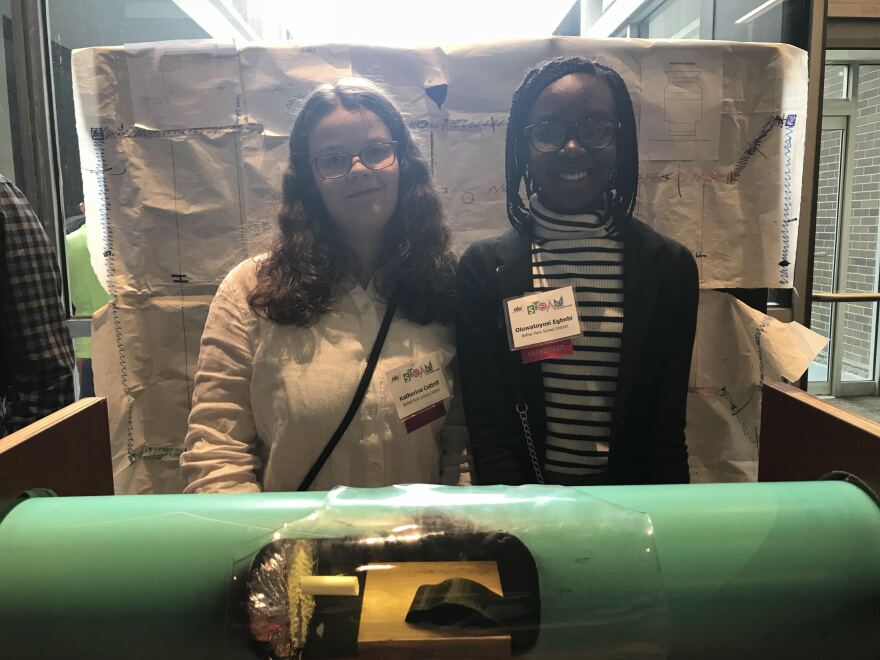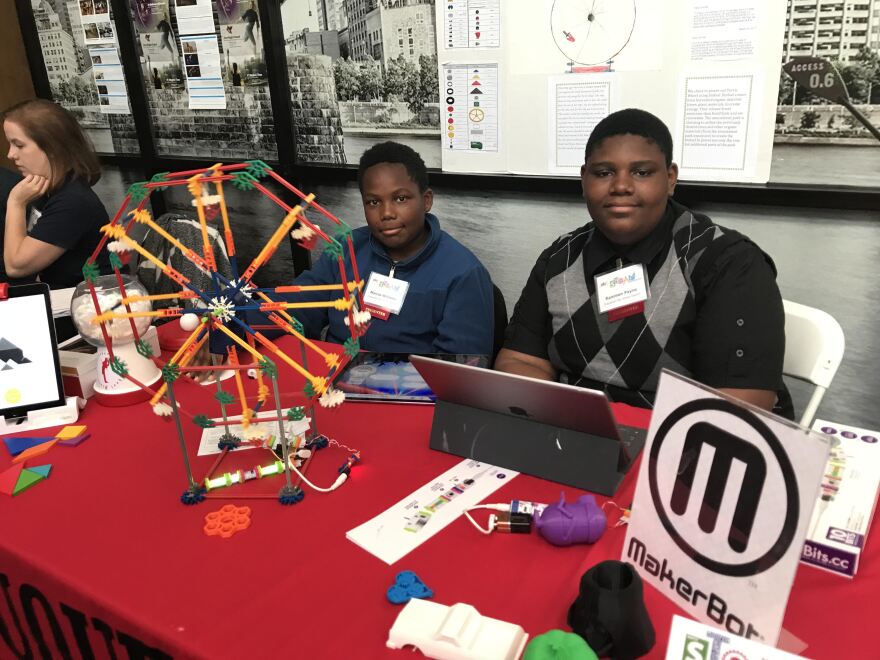Toyosi Egbebi says she spends a lot of her free time taking things apart and trying to figure out how they work.
“I take pens apart a lot. I tried to take apart my computer,” she said. “That didn’t go very well.”
The Bethel Park 8th grader said she sought out an after school club with other kids who also like to tinker. They worked for seven months to prototype and build a drivable go-cart using a 3-D printer to build parts. The school had grant money to integrate more science, technology, engineering, arts and math – or STEAM – concepts into the school, but Egbebi said she wants more opportunities.

“I’d like to see more engineering and science-related things, because we don’t really do that much," she said. "We’re limited in normal classes."
The AIU has given $20,000 STEAM grants to schools for six years with the goal of incorporating more STEAM learning into a school’s curriculum.
Roseanne Javorsky, assistant executive director for teaching and learning with the AIU, acknowledges that resource-poor schools need intensive support.
This year, the agency scaled back and gave six economically-disadvantaged schools $16,500 grants. Wilkinsburg, Sto-Rox, New Castle, Monessen, Clariton City and Duquesne each received a grant. Each of those districts have a 100 percent rate of students qualifying for free and reduced lunch.
“We wanted to take a step back and make sure that what we were doing was really having the effect that we wanted it to have,” said Rosanne Javorsky. “And we had this desire to really focus on our poorer school districts to try to get them up to a level of opportunity.”
The schools will each use the funding for projects like a maker space and STEAM clubs. But, the schools will also send educators to quarterly workshops on program evaluation and grant writing.
City and county officials say western Pennsylvania can expect 30,000 new medicine and technology jobs to be created every year in the next decade. Allegheny County Executive Rich Fitzgerald says schools and teachers have to be vigilant in preparing students for those jobs so they will stay in the region once they graduate. But, many educators says there is a resource gap that effects what schools can offer students.
Duquesne City School is using its grant money to re-vamp its library into a multi-media center.

The district closed its high school in 2007 due to declining enrollment and low standardized test scores. The district is one of the poorest-performing schools in the state, according to the Pennsylvania Department of Education.
Samantha Utley has been with the district for 10 years. She is now an instructional coach for science and technology and she is the school’s STEAM coordinator. That position was created when the district received its first STEAM grant from the AIU.
She says her job is to open the door for black children to thrive in STEAM fields. She said the opportunity and resource gaps between schools often is because teachers are doing what they can in their own silos.
“Whenever you’re teaching, you get stuck in your own little bubble and it’s easier focus on what’s right in front of you versus what’s all around you. But I really think if we start reaching out to one another and networking, we can really close that gap and bring opportunities to students who wouldn’t see them normally,” she said.




